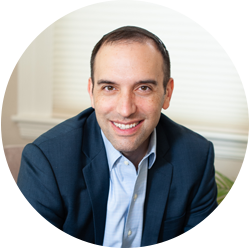Shalom Chaverim,
This past Monday I attended a Memorial Day bar mitzvah of a close family friend. The singing was spirited, the Torah reading was flawless, and the (shorter) weekday liturgy made it just the right length! But the most meaningful moment for me was when the uncle of the bar mitzvah boy spoke. As a U.S. military veteran, he wanted to celebrate his nephew and to commemorate Memorial Day.
Memorial Day honors the men and women who have made the ultimate sacrifice in service of their country, he reminded us. What does this have to do with a bar mitzvah? From a developmental perspective, growing up means realizing that life is not just about you; there are other people and a broader world with which you are interdependent and partly responsible. Becoming an adult, which the rite of bar mitzvah signifies, is the beginning of a life of sacrifice and service — to others and to a greater good.
I found these heartfelt words from an uncle to his nephew inspiring. He connected American history and citizenship with Jewish tradition and identity through insight into stages of ethical development and the concept of coming of age. What a beautiful way to understand the significance of becoming a bar mitzvah, literally “one who is obligated.” Instead of focusing on the now-binding rules and laws, he emphasized a moral and psychological shift in one’s sense of self and relationship to the world. A bar mitzvah is one who understands and feels the weight of responsibility for one’s actions.
This message also connects beautifully to this week’s Torah portion, the last in the Book of Leviticus, which the bar mitzvah boy had read just a few minutes earlier. “Im bechukotai telechu... (If you walk in my ways),” God tells the Israelites, then good things will happen for you. But, if you do not... things will not go so well.
While modern readers and even the Rabbinic tradition have wrestled with the traditional biblical theology of punishment and reward — because we know that bad things do happen to good people — the broader message is one of actions and consequences.
Consider the very first word of the Torah portion: Im — "If". That one word is a key to understanding the kind of moral development and ethical responsibility about which the bar mitzvah boy’s uncle spoke so movingly. The ability and willingness to slow down and consider, to pause and think before acting are essential to becoming b’nei mitzvah, and to living a more intentional, more responsible life.
We need to ask ourselves: If I do this or do not do this, what might the consequences be? And not just for me, but for others and the world?
Shabbat Shalom,
Rabbi Marc Baker

About the Author
CJP President and CEO Rabbi Marc Baker is an educator, writer, and leadership mentor who is devoting his life to Jewish learning and building Jewish communities.
